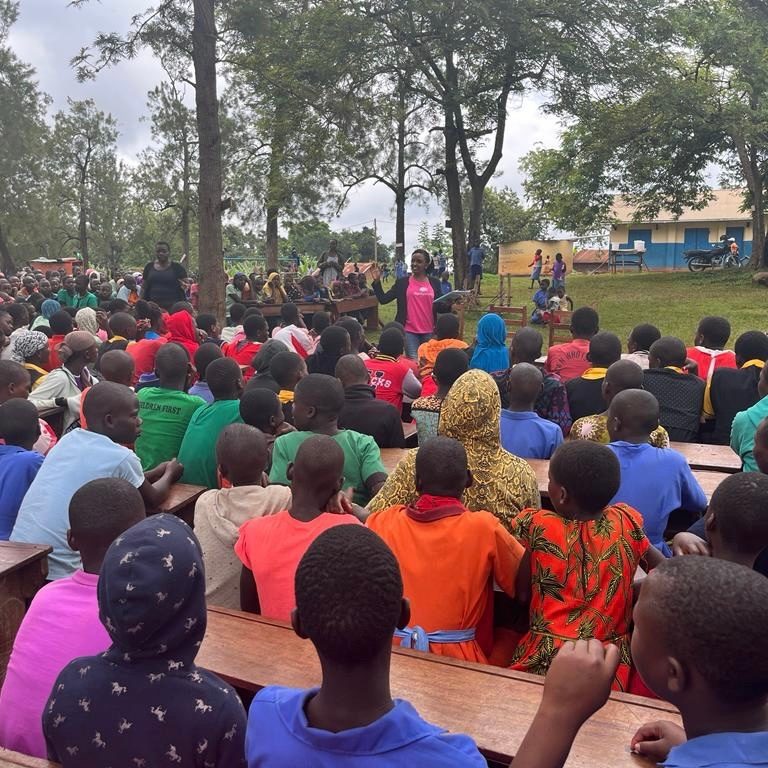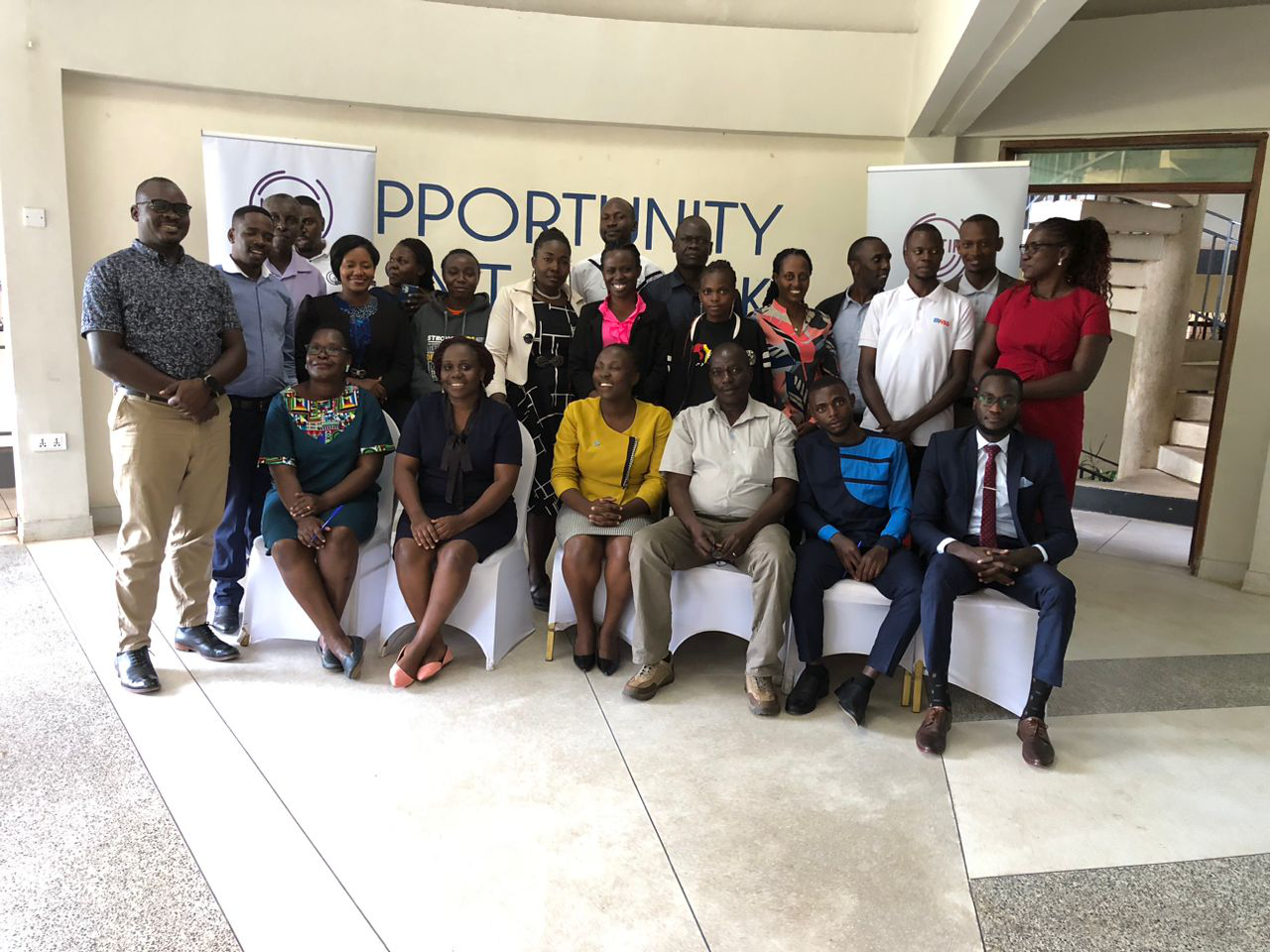Empowering Youth to Combat Human Trafficking: A Successful Awareness Campaign at Kibibi Primary School in Jinja
Blog written by Doreen Birungi of One by One and Josephine Tusingwire of Sole Hope
As the world prepares to commemorate the World Day against Trafficking in Persons on July 30, 2023, the fight against human trafficking gains momentum. In a remarkable collaboration, One by One and Sole Hope joined forces with the Coalition Against Trafficking in Persons Uganda (CATIP-U) to tackle the prevention aspect of this grave issue in Jinja. The focal point of their efforts was the Kibibi Primary School, where an open session on anti-trafficking was organised last week. This outreach marked the first time the school received such crucial information aimed at empowering the students to be vigilant and resilient against human trafficking.
Aligning with this year’s theme, “Reach Every Victim of Trafficking, Leave No One Behind,” the initiative aimed to raise awareness among school-going children about their vulnerability as potential targets of traffickers. The information provided during the session aimed to equip the learners with knowledge about the realities of human trafficking, enabling them to recognise the signs, stay informed about society’s happenings, and take a stand against this heinous crime.
Recognising the vital role of the police in combating human trafficking, the event invited representatives from the child and family protection unit of the Uganda police. They shared valuable insights on the police’s role in the fight against human trafficking, emphasising their commitment to protecting children and families from exploitation.
The awareness session meticulously addressed the various elements of trafficking, focusing on a simplified definition and outlining the activities involved. The attendees, who included students, teachers, and non-teaching staff, were educated about the ACT (recruitment, mobilisation, transfer, transportation, and receipt) of human trafficking. To make the concepts relatable to the children, real-life examples were presented, highlighting cases where children were mobilised by their peers and transported to Kampala under uncertain circumstances.
Sole Hope, one of the collaborating organisations, shed light on the means used by traffickers and the tactics they employ to lure children away from school and home. One student shared a harrowing experience of individuals visiting their village under the guise of offering bursaries to children. Such eye-opening accounts revealed the gravity of the situation and urged the children to remain vigilant and cautious.
The CFPU officer shared compelling real-life trafficking cases involving children, leaving a profound impact on the young audience. These stories brought the harsh reality of human trafficking closer to home, making it more tangible and relatable to the children’s own lives.
Responding to the students’ repeated inquiries about safety measures, the presenters shared practical tips and precautionary measures. The learners were encouraged to share the knowledge they had gained with their families, ensuring that no one would be left behind in the fight against human trafficking.
The day’s activities went beyond awareness sessions, as One by One and Sole Hope integrated their routine programmes to benefit the students. Sole Hope organised a jigger treatment clinic, providing necessary medical care to help the learners stay in school, thus reducing their vulnerability to traffickers. Simultaneously, One by One addressed menstrual health hygiene, supporting girls with reusable sanitary pads to promote girl child education and minimise their exposure to potential traffickers.
Through the awareness messages delivered on July 6, a total of 750 students and their teachers became informed advocates against human trafficking. This substantial outreach exemplified the campaign’s commitment to leaving no one behind, ensuring that every young individual had access to essential knowledge and tools to protect themselves and others from the scourge of human trafficking.
The collaborative efforts of One by One, Sole Hope, and the Coalition Against Trafficking in Persons Uganda (CATIP-U) yielded resounding success in raising awareness about human trafficking among schoolchildren in Jinja. By educating the students, sharing real-life stories, promoting safety measures, and providing vital support, the campaign empowered young individuals to stand up against this pervasive crime. Through their efforts, they ensured that no one was left behind in the fight against human trafficking, creating a safer and more resilient community for all.


